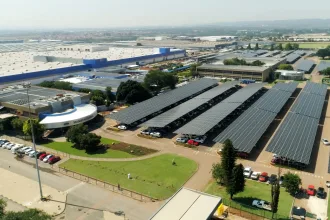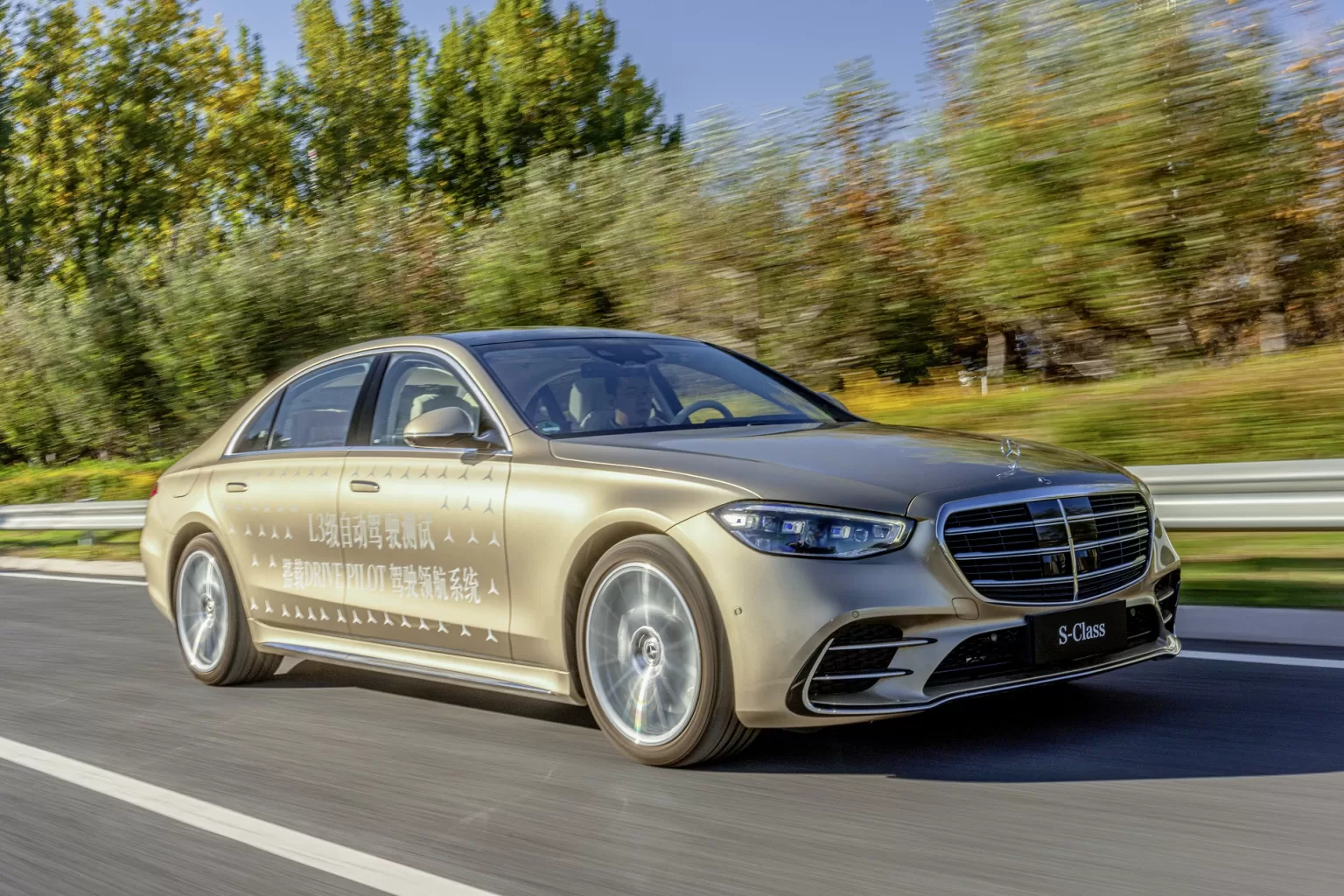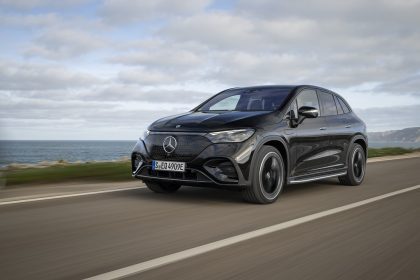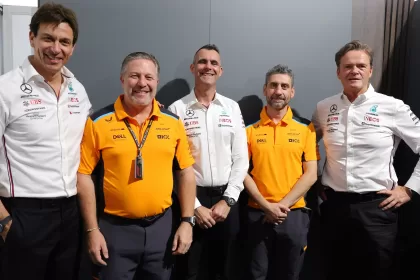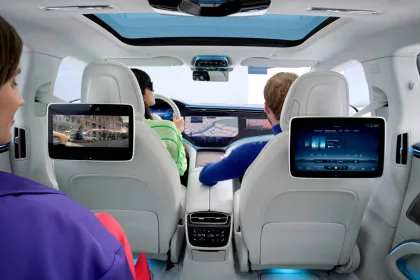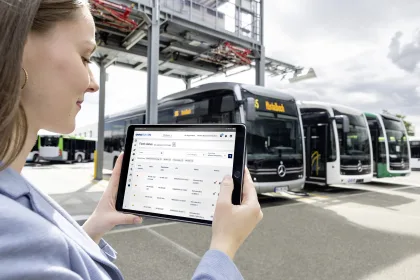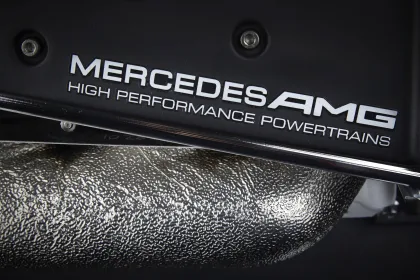- Mercedes-Benz is one of the first OEMs to obtain approval for the conditionally automated driving road test license in Beijing.
- Since 2021, Mercedes-Benz has conducted proving ground tests for conditionally automated driving systems in China.
- In China, Mercedes-Benz integrates its global R&D experience with a local R&D team and through cooperating with local partners and adapting to local regulations to deliver tailored products for Chinese customers.
- In December 2021, Mercedes-Benz received the world’s first internationally valid system approval for conditionally automated driving. DRIVE PILOT has been available in Germany since May 2022 in the S-Class and the EQS sedan.
On December 16, Mercedes-Benz became one of the first automakers to receive approval for the conditionally automated driving (Level 3) highway road test license in Beijing. Mercedes-Benz will begin conditionally automated driving system testing on designated highways in Beijing while always adhering to its ‘safety first’ principle. The company actively cooperates with relevant authorities in developing its Level 3 systems for China and aims to provide Chinese customers with a safe and reliable automated driving experience.
Mercedes-Benz has consistently been a pioneer in automated driving. It started in 1986 with adaptive cruise control testing. Today, it is the only car manufacturer in the world with the world’s first internationally valid system approval for conditionally automated driving and a SAE Level 4 driverless parking system in place. In China, Mercedes-Benz has been conducting proving ground tests of Level 3 systems for years.
“Mercedes-Benz as the leader in automated driving technology is dedicated to providing the best customer experience – worldwide. After bringing our DRIVE PILOT to Germany and the U.S., the testing license in Beijing is the next important milestone to get conditionally automated driving ready for Chinese roads. We will incorporate all our global expertise to support the local R&D team for a safe and reliable system design.”
Markus Schäfer, Member of the Board of Management of Mercedes-Benz Group AG,
Chief Technology Officer, Development & Procurement
Mercedes-Benz Level 3 automated driving system: Redundancy for safety and reliability
The level 3 system DRIVE PILOT builds on the sensor technology of the Driving Assistance Package and includes additional sensors that Mercedes-Benz considers essential for safe conditionally automated driving. These include a LiDAR sensor, an advanced stereo camera in the front window, a multi-purpose camera in the rear window and microphones, especially for detecting blue lights and other special signals from emergency vehicles, as well as a moisture sensor in the front wheelhouse. In addition, the S-Class and EQS with DRIVE PILOT option has redundant steering and braking systems as well as a redundant on-board electrical system to remain manoeuvrable even if one of these systems fails and to ensure a safe handover to the driver.
The advantages for the customer are clear: during conditionally automated driving, the activated DRIVE PILOT allows the driver to take their mind off the traffic and focus on certain secondary activities, be it communicating with others via In-Car Office, browsing the web or relaxing while watching a movie. Mercedes‑Benz introduced DRIVE PILOT in Germany as an optional conditionally automated driving system in the S-Class and the all-electric EQS sedan in 2022. In the U.S., the production-ready version of DRIVE PILOT has already made its on-road debut in California and Nevada with a limited fleet of Level 3 equipped EQS Sedans. Customer deliveries of DRIVE PILOT equipped MY2024 EQS Sedan and S-Class models will be available in early 2024 through participating authorized Mercedes-Benz dealers in California and Nevada.
As far as system design is concerned, Mercedes-Benz is taking a step-by-step approach focused on safety. By the end of this decade, the manufacturer wants to expand the availability on the freeway to up to 130 km/h. In the meantime, Mercedes-Benz wants to offer intermediate steps. For Germany, the next move will be a system which can do 90 km/h when following a vehicle upfront on the German highway.
Tailoring the vehicles to the Chinese market through China R&D capabilities
In China, Mercedes-Benz integrates its global R&D experience with a local R&D team with strong capabilities, and through cooperating with local partners and adapting to local regulations to deliver tailored products for Chinese customers. For the development and approval of the conditionally automated driving system, engineers, lawyers, compliance managers, data protection experts and ethics experts worked together as an interdisciplinary team. To make the Level 3 automated driving system more adaptable to China’s infrastructure and traffic conditions, the local R&D team has been deeply involved from the early stages of relevant global development. Since 2021, Mercedes-Benz has undertaken proving ground testing and validation in China to continuously enhance Level 3 system performance. The focus of local R&D efforts includes adapting the system to China’s unique road signs, markings, construction zones, special lanes such as bus lanes and tidal lanes, and continually optimising logic, algorithms and parameters for scenarios like vehicle cutting-in.
Starting in 2005 with the first locally-produced E-Class model, Mercedes-Benz has continuously expanded its R&D capabilities in China to meet customer needs. Over the past 18 years, China’s R&D network has developed into the most comprehensive R&D network outside of Germany. In recent years, Mercedes-Benz established new R&D centres in Beijing and Shanghai in 2021 and 2022 respectively while expanding its extensive collaboration with local partners. This includes over a decade of longstanding joint research with Tsinghua University in sustainable mobility.
Mercedes-Benz also continues to attract local talent and expand its local R&D team. By the end of 2023, its China R&D team is expected to grow to 2,000 people. Through collaborative innovation in cutting-edge technology, Mercedes-Benz consistently brings more exclusive products and services to Chinese customers while sharing inspirations to the global R&D network.
In the field of automated driving, Mercedes-Benz will continue to cooperate with local authorities in the future, bringing innovative technologies to Chinese customers and contributing to the development of the intelligent connected vehicles in China.




